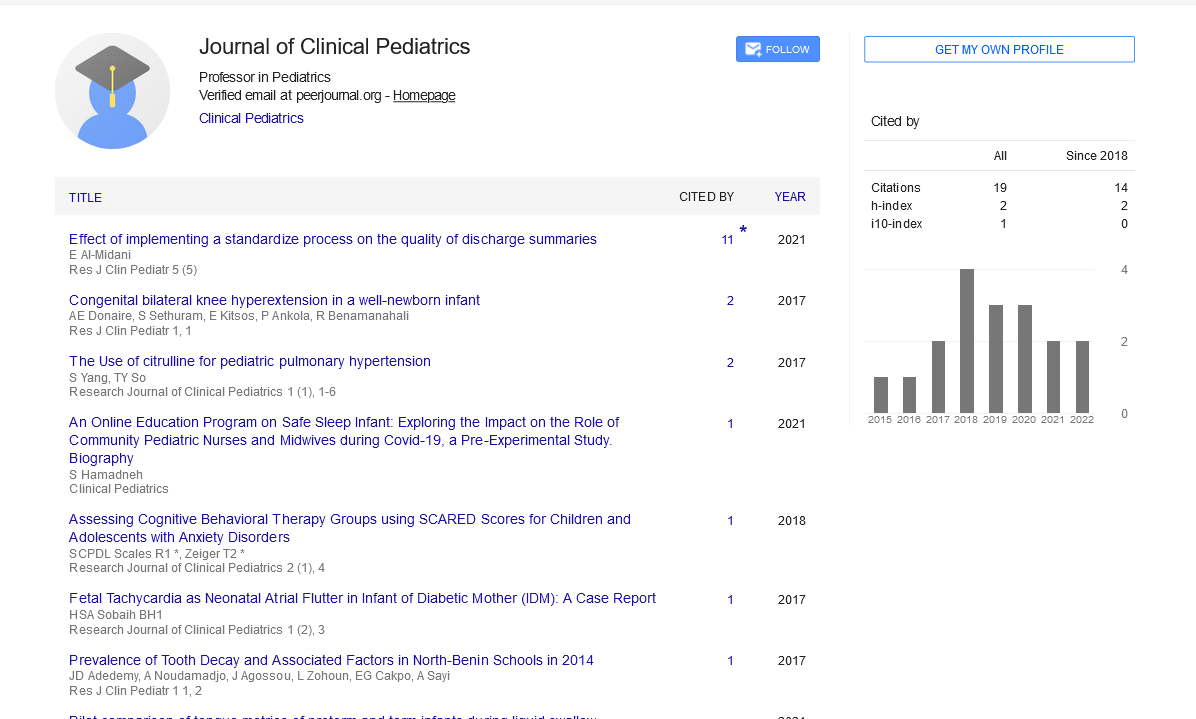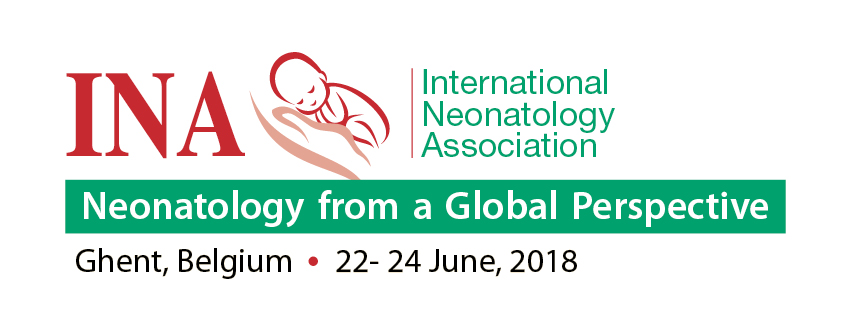Opinion Article, Res J Clin Pediatr Vol: 7 Issue: 4
Importance of Pediatric Cardiology: Its Treatment Approaches and Future Directions
Atsuko Veronica*
1Department of Adolescent and Young Adult Medicine, University of California, California, United States of America
*Corresponding Author: Atsuko Veronica,
Department of Adolescent and Young
Adult Medicine, University of California, California, United States of America
E-mail: veronica.atsuko@ucsf.edu
Received date: 27 November, 2023, Manuscript No. RJCP-24-128398;
Editor assigned date: 30 November, 2023, PreQC No. RJCP-24-128398 (PQ);
Reviewed date: 07 December, 2023, QC No. RJCP-24-128398;
Revised date: 21 December, 2023, Manuscript No. RJCP-24-128398 (R);
Published date: 28 December, 2023 DOI: 10.4172/rjcp.1000161
Citation: Veronica A (2023) Importance of Pediatric Cardiology: Its Treatment Approaches and Future Directions. Res J Clin Pediatr 7:4.
Description
Pediatric cardiology is a specialized branch of medicine focused on diagnosing and treating heart conditions in infants, children, and adolescents. This field addresses a wide spectrum of congenital and acquired heart defects, aiming to provide comprehensive care to young patients with cardiac issues. Pediatric cardiology encompasses various congenital heart diseases (CHDs) present at birth, such as Atrial Septal Defects (ASDs), Ventricular Septal Defects (VSDs), tetralogy of Fallot, transposition of the great arteries, and many more. Additionally, it deals with acquired heart conditions like Kawasaki disease, myocarditis, arrhythmias, and cardiomyopathies.
The significance of pediatric cardiology lies in its focus on early detection, accurate diagnosis, and effective management of heart diseases in children. Timely intervention and ongoing care are critical to improving outcomes and ensuring a better quality of life for these young patients. Pediatric cardiologists employ various diagnostic tools to assess heart health in children. Echocardiography is one of the primary imaging techniques, utilizing sound waves to create images of the heart's structure and function. Fetal echocardiography enables the detection of congenital heart defects before birth, aiding in early intervention planning.
Other diagnostic modalities include electrocardiography (ECG or EKG), which records the heart's electrical activity, and cardiac catheterization, a procedure allowing direct visualization and intervention in the heart's chambers and vessels. The treatment approach in pediatric cardiology varies based on the specific heart condition and its severity. Some conditions might resolve without intervention, while others require medical management, minimally invasive procedures, or surgery.
Medications like diuretics, beta-blockers, and anti-arrhythmic drugs help manage symptoms and improve heart function. Minimally invasive interventions, such as catheter-based procedures like balloon angioplasty or device closure of defects, offer alternatives to traditional open-heart surgeries. For complex congenital heart defects or severe cases, surgical intervention remains an important aspect. Pediatric cardiac surgeons perform intricate procedures, including heart valve repairs/replacements, correction of structural abnormalities, and heart transplantation in extreme cases.
Pediatric cardiology doesn't only focus on the physical aspects of heart health but also emphasizes global care. This involves addressing emotional, psychological, and developmental aspects of the child. Collaborating with pediatric psychologists, social workers, and physical therapists ensures comprehensive support for the patient and their family throughout the treatment journey. Continual advancements in technology and research contribute to evolving treatment methodologies and better outcomes in pediatric cardiology.
Ongoing research explores genetic factors contributing to congenital heart defects, advancements in surgical techniques, and the development of novel therapies, including regenerative medicine approaches.
Despite significant progress, challenges persist in pediatric cardiology. Access to specialized care, especially in underserved regions, remains a concern. Additionally, the long-term outcomes and care transition from pediatric to adult cardiology for individuals with congenital heart conditions need continued attention. Pediatric cardiology plays an important role in diagnosing, managing, and treating heart conditions in infants, children, and adolescents. Its multidisciplinary approach, coupled with on-going advancements, underscores its commitment to providing the best possible care for young patients with cardiac issues.
 Spanish
Spanish  Chinese
Chinese  Russian
Russian  German
German  French
French  Japanese
Japanese  Portuguese
Portuguese  Hindi
Hindi 
